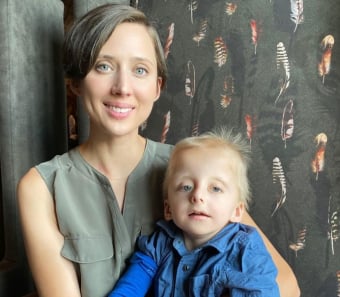This biochemical test is a quantitative measurement of beta-glucuronidase enzyme activity and can be used as a 1st tier test for patients with a clinical suspicion of Mucopolysaccharidosis VII (MPS VII), Sly Syndrome. Demonstration of deficient beta-glucuronidase enzyme activity is considered the gold standard to confirm a diagnosis of Mucopolysaccharidosis VII (MPS VII), Sly Syndrome.
2 weeks
82657
$200
Sly syndrome, or mucopolysaccharidosis type VII, is a lysosomal storage disorder resulting from deficient enzyme activity of beta-glucuronidase. This autosomal recessive disorder has a highly variable phenotype. The most severe form presents prenatally as hydrops fetalis. Patients with a less severe phenotype present with hepatomegaly, skeleltal anomalies and coarse facies. The degree of cognitive impairment varies with the mildest cases surviving into adulthood.
This test can be used to confirm a suspected Sly syndrome diagnosis.
4-methylumbelliferyl substrate
Enzyme activity can be measured in leukocytes, cultured fibroblasts, or dried blood spots. For leukocytes, please send 5-10 ml of whole blood in a green top (sodium heparin) tube. For dried blood spot collection, a minimum of three circles need to be filled in. Each circle should contain one drop of blood (about 100 microliters). See the link below for additional sample collection and handling instructions.
Whole blood samples (for leukocyte analysis) should be shipped at ambient temperature and must arrive at the laboratory the next day. Cultured fibroblasts should be sent overnight at room temperature. For a dried blood spot: When the sample has dried 3-4 hours, fold cover at score line, over sample, and tuck into flap. Samples can be mailed at ambient temperature.
Call our laboratory at 1-800-473-9411 or contact one of our Laboratory Genetic Counselors for assistance.
Robin Fletcher, MS, CGC
Falecia Thomas, MS, CGC
Alex Finley, MS, CGC
